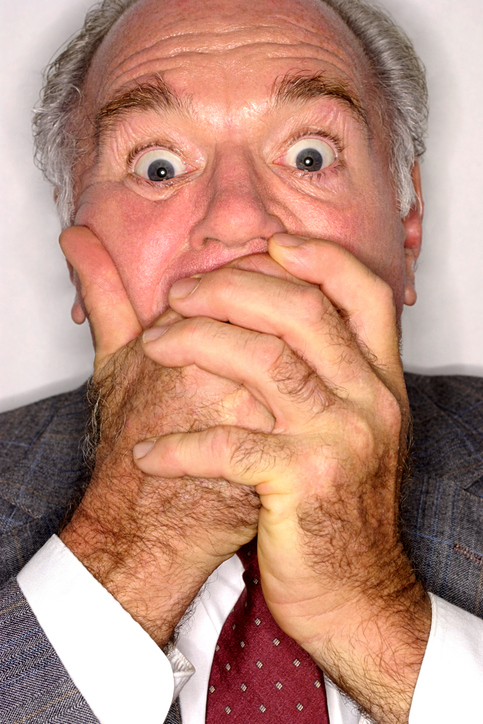Have you noticed that your breath seems to stink more often than it doesn’t? Have you had friends or family step away when you’re talking, or tell you outright that you have bad breath? This can be an embarrassing situation and oftentimes people simply cover up their bad breath with mints and mouthwash. However, in many cases, bad breath is more than an inconvenience – it’s a sign that something’s wrong.
Chronic bad breath is almost always a sign of gum disease
There are some foods and beverages that give people bad breath, including onions, garlic, and coffee. Smokers also are more likely to have bad breath. However, if you notice that you have bed breath all the time – or often – then it’s likely a sign of something else. In fact, about 90% of people who have chronic bad breath have gum disease.
Where does bad breath come from?
Every time you eat food, food gets on your teeth. If it’s there long enough, it will turn into a sticky white film called plaque. It can be removed by brushing your teeth, but there are times when you can’t get to a certain area of your mouth well, or you simply miss a spot. The result is that the plaque hardens up – much like food will harden up if left on a plate without being rinsed off. When plaque is left to fester for several hours, it turns into a hard yellow material called tarter.
Inside tarter are millions of bacteria. Bacteria actually feed on your food and create acid, which can then eat your teeth and create cavities. Bacteria also creates gases after eating the food you leave in your mouth, and the gasses that are created are what people smell when they smell bad breath.
Treatments for bad breath
The first thing to do is come in to California Dental Group for a cleaning and exam. We will take a look, completing x-rays if necessary, to let you know what your issues and options are. As mentioned above, often times it’s actually an issue of gum disease. Other symptoms of gum disease include gums that are puffy, bleeding, itchy, or red. Note that pain is rarely a symptom of early stage periodontal disease, otherwise known as gum disease.
If we do determine that you have gum disease, we’ll start with a cleaning. If we catch it early, that may be all that’s necessary. However, you may need a deep cleaning or other treatments. We will go over your results and your treatment options. No matter what we do for you, remember that though brushing and flossing can’t treat gum disease once you have it, they can go a long way towards it preventing it from popping up in the first place.


